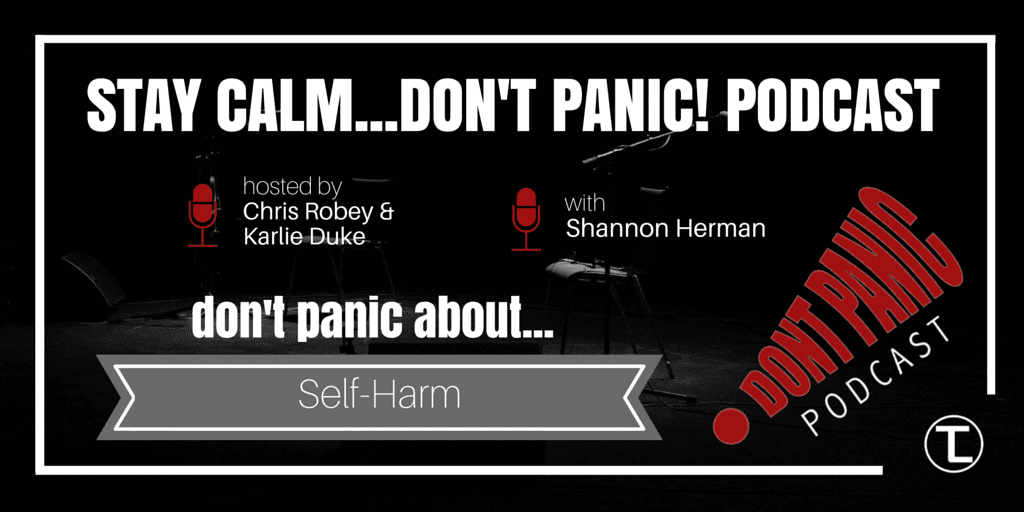Podcast: Play in new window | Download
In this episode, you’ll find out…
- Several types of self-harming behaviors seen among teenagers.
- What ages and genders engage in self-injurious behaviors.
- Some presenting issues and warning signs behind self-harm (hint: it’s not always the cat!)
- The importance of confronting a self-harming teenager.
- Some positive ways to react to self-injurious behavior.
- What steps to take after discovering self-harming behaviors.
Ask yourself…
- Am I paying attention to warning signs and behavior changes?
- How would I react if a teen revealed self-injurious marks to me?
- Am I listening? Am I available?
Go ask a teen…
- What triggers you to self-harm? What do you have on your mind right before you do that?
- What do you hope the end result will be when you are self-injuring?
- Can I see the places where you have hurt yourself?
[bctt tweet=”You’re not there to be that teen’s friend, you’re there to potentially save their life – @dontpanictalk” via=”no”]
Additional Resources:
In this episode, we mentioned the following resources:
- Shannon’s Site: shannonhermanlpc.com
- Website: dontpanicpodcast.org
- Music: Under the Chandeliers
About us:
 Shannon Herman has been in private practice in the Dallas-Fort Worth area for over four years as a Licensed Professional Counselor. Her focus is on issues related to adult and adolescent women such as: eating disorders, body image concerns, depression, anxiety/stress management and low-self esteem. As a mom of 2 girls and wife of a Youth Minister, Shannon is dedicated to motivating and empowering clients to stimulate change within their life. Find her website here!
Shannon Herman has been in private practice in the Dallas-Fort Worth area for over four years as a Licensed Professional Counselor. Her focus is on issues related to adult and adolescent women such as: eating disorders, body image concerns, depression, anxiety/stress management and low-self esteem. As a mom of 2 girls and wife of a Youth Minister, Shannon is dedicated to motivating and empowering clients to stimulate change within their life. Find her website here!
Chris Robey is the Program Director for Teen Lifeline, Inc. Earlier in his career while working as a youth minister, Chris earned a Masters Degree in Family Life Education from Lubbock Christian University to better equip his work with teenagers and families. Chris’ career and educational opportunities have exposed him to teenagers from a variety of backgrounds. Follow him on Twitter!
Karlie Duke started working as Teen Lifeline’s Communications Director after graduating from Abilene Christian University with a degree in Communications with a minor in Family Studies. Karlie has worked with teenagers for the past 5 years and is passionate about encouraging students to live better stories. Follow her on Twitter or Instagram!
Have a question?




